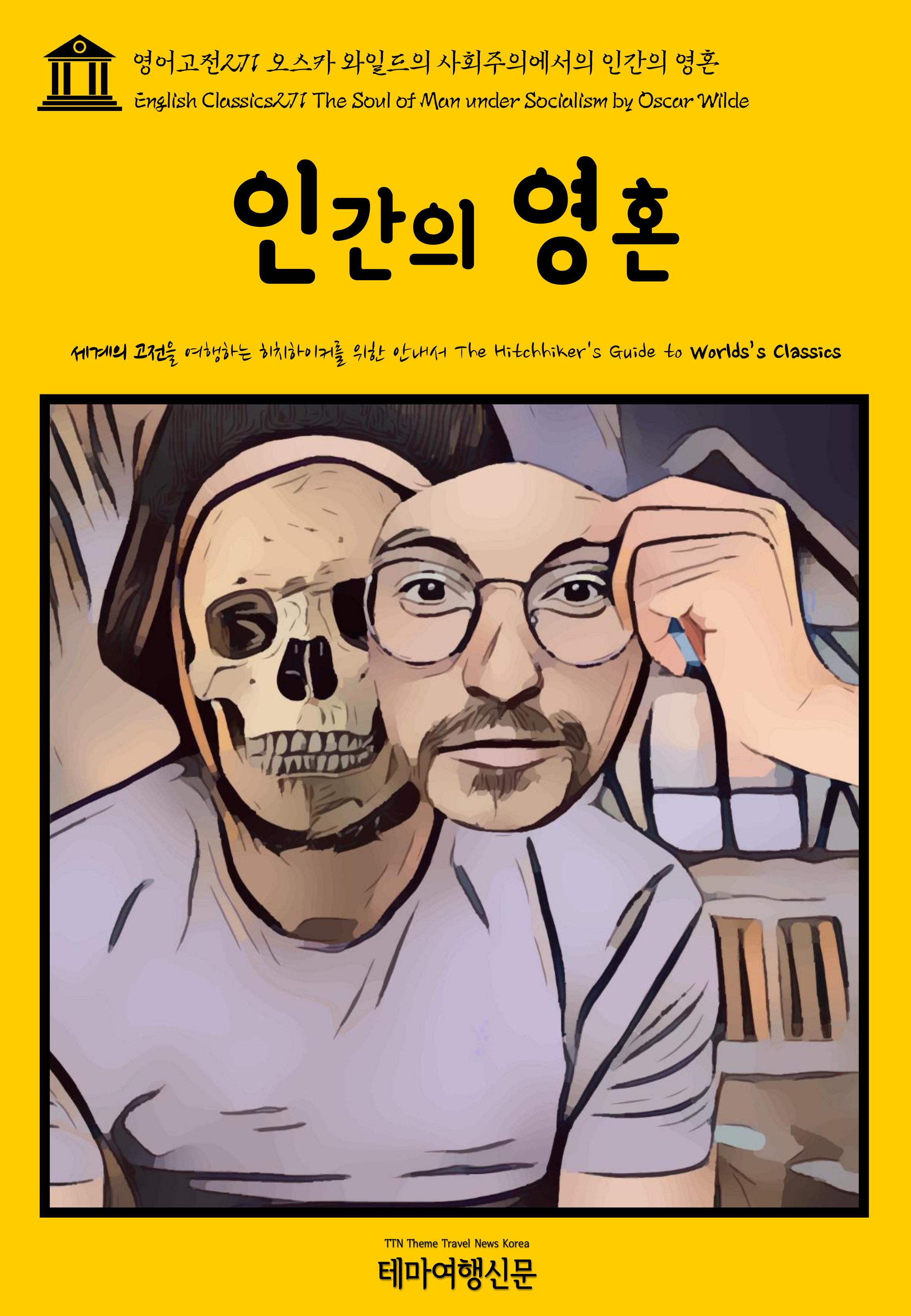표트르 알렉세예비치 크로폿킨 공작(Peter Kropotkin)(1842~1921)은 러시아에서 태어나 성장하였으나, 유럽에서 이름을 떨친 아나키스트 운동가 겸 철학자입니다. 황족 다음으로 높은 공작 가문에서 태어나 상트페테르부르크 근위사관 학교를 졸업하고 기병대 장교로 근무한 엘리트임에도 불구하고, 당대 농민들이 겪는 고난을 목도한 끝에 가문의 모든 특혜를 포기하였습니다. 아나키스트 운동가로써 청년에게 고함(An Appeal to the Young)(1880), 빵의 정복(La Conqu?tedu pain)(1892), 만물은 서로 돕는다(Mutual Aid, a Factor of Evolution)(1902) 등의 저서를 출간해 유럽과 러시아에서 명성이 높았으며, 한 혁명가의 회상(Memoirs of a Revolutionist)(1899)은 성 아우구스티누스의 고백록(AD 397~400), 장 자크 루소의 참회록(1782), 괴테의 시와 진실(1846), 한스 안데르센의 내 생애의 이야기(The true story of my life)(1847)와 함께 ‘세계 5대 자서전’ 중 하나로 꼽힐 정도의 명저로 인정받고 있습니다. 오스카 와일드는 그의 작품을 읽은 후 그의 삶과 철학에 매료되었습니다! 이후 1891년 아나키스트 철학(anarchist philosophy)을 표방하며, 1891년 자유지상주의 사회주의 세계관(libertarian socialist worldview)과 일차원적인 빈자에 대한 구빈 활동(charity)을 비난하는 사회주의에서의 인간의 영혼(The Soul of Man under Socialism by Oscar Wilde)(1891)을 집필하였습니다. 번외적으로 1895년 그가 동성애 혐의로 인해 유죄 판결을 받은 후 사적인 용도(privately printed)로 인쇄된 인간의 영혼(The Soul of Man under Socialism by Oscar Wilde)(1891) 50부가 훼손되기도 했습니다. 테마여행신문 TTN Korea 영어고전(English Classics)과 함께 어제도, 오늘도, 내일도 멋진 문학여행을! B
물론 오스카 와일드는 인간의 이타주의(altruism)와 친절(kindness) 그 자체를 비난한 것은 아닙니다만, 이것이 빈부격차와 빈자의 굶주림을 근본적으로 해결할 수 없으며 오히려 해결을 방해하고 있다고 목소리를 높였습니다.
The majority of people spoil their lives by an unhealthy and exaggerated altruism?are forced, indeed, so to spoil them. They find themselves surrounded by hideous poverty, by hideous ugliness, by hideous starvation. It is inevitable that they should be strongly moved by all this. The emotions of man are stirred more quickly than man’s intelligence; and, as I pointed out some time ago in an article on the function of criticism, it is much more easy to have sympathy with suffering than it is to have sympathy with thought. Accordingly, with admirable, though misdirected intentions, they very seriously and very sentimentally set themselves to the task of remedying the evils that they see. But their remedies do not cure the disease: they merely prolong it. Indeed, their remedies are part of the disease.
부자의 적선이 가난을 숙명처럼 여기는 도덕적인 빈자를 구원할 수 없다는 것을 우리는 이미 잘 알고 있습니다. 노동을 통해 적당한 대가를 취할 수 없는 구조에서 오히려 부자의 적선을 기대하는 무기력한 빈자를 양산할 따름이지요. 빈자가 부자의 적선에 감사하는 현실이야말로 오스카 와일드가 생각하는 가장 큰 문제였습니다.
We are often told that the poor are grateful for charity. Some of them are, no doubt, but the best amongst the poor are never grateful. They are ungrateful, discontented, disobedient, and rebellious. They are quite right to be so. Charity they feel to be a ridiculously inadequate mode of partial restitution, or a sentimental dole, usually accompanied by some impertinent attempt on the part of the sentimentalist to tyrannise over their private lives. Why should they be grateful for the crumbs that fall from the rich man’s table? They should be seated at the board, and are beginning to know it. As for being discontented, a man who would not be discontented with such surroundings and such a low mode of life would be a perfect brute.
그렇기 때문에 근본적인 문제를 해결하기 위해 사유재산을 폐지하자고 주장하였습니다. 오스카 와일드는 인간이 맹목적으로 부에 탐닉하는 사유재산이야말로 우리가 인생을 낭비하는 가장 큰 이유라고 지적하였습니다.
With the abolition of private property, then, we shall have true, beautiful, healthy Individualism. Nobody will waste his life in accumulating things, and the symbols for things. One will live. To live is the rarest thing in the world. Most people exist, that is all.
자본가들이 주도하는 자본주의와 사유재산이 사라진 세상?! 오스카 와일드는 비자본주의적 개인주의(non-capitalist individualism)를 통해 예술가를 포함한 개개인이 오히려 자신의 성장에 집중할 수 있으리라 기대하였습니다.
Art is Individualism, and Individualism is a disturbing and disintegrating force. Therein lies its immense value. For what it seeks to disturb is monotony of type, slavery of custom, tyranny of habit, and the reduction of man to the level of a machine. In Art, the public accept what has been, because they cannot alter it, not because they appreciate it. They swallow their classics whole, and never taste them. They endure them as the inevitable, and as they cannot mar them, they mouth about them. Strangely enough, or not strangely, according to one’s own views, this acceptance of the classics does a great deal of harm. The uncritical admiration of the Bible and Shakespeare in England is an instance of what I mean. With regard to the Bible, considerations of ecclesiastical authority enter into the matter, so that I need not dwell upon the point.





